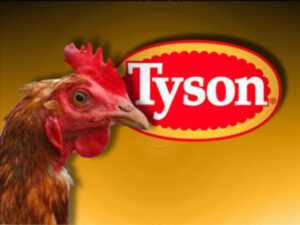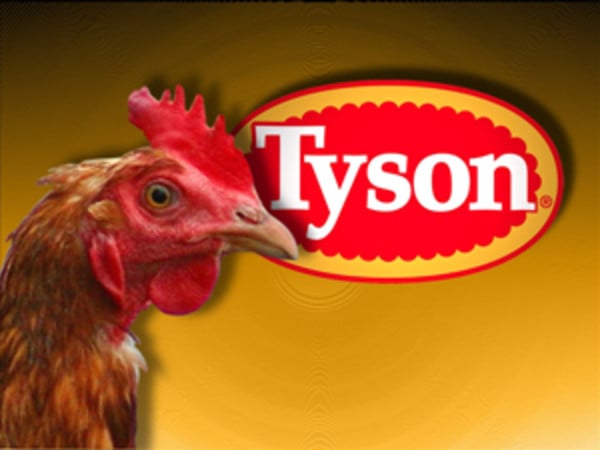Tyson Foods Lied To Consumers About Drugs Used To Raise Their Chickens

Because of the rising demand for drug free meat and poultry, it looks like big food producers are turning to deceitful tactics to trick consumers into thinking their products are drug free.

Tyson Foods has been marketing their chickens as being raised without antibiotics. However Tyson uses a poultry feed additive known as ionophores, that the U.S. Department of Agriculture classifies as an antibiotic. Ionophores are given to poultry to control the parasitic disease coccidiosis. It is also used as a growth promoter for cattle.
Because ionophores have been shown not to be harmful to humans (and are supposedly not a threat to antibiotic resistance) , Tyson wanted to advertise its chicken as being “without harmful antibiotics.” In December 2007, the USDA approved the phrase for marketing purposes, but competitors Perdue Farms and Sanderson Farms filed lawsuits one month later. Consumers followed with a class-action suit.
A federal judge has signed off on a preliminary agreement that could net consumers $5 million in refunds and coupons from the nation’s largest poultry producer. Individuals who bought Tyson chicken products labeled as having been raised without antibiotics from mid-June 2007 through April 2009 would be entitled to refunds. This settlement also includes Tyson’s fresh, frozen or deli chicken along with Cornish hens or tenders during the same time period.
Concerns about antibiotic resistance has European regulators concerned enough that they have banned several in-feed antibiotics for their animals. Legislators in the United States are considering a similar action with The Preservation of Antibiotics for Medical Treatment Act, which would prohibit the use of many non-therapeutic antibiotics in animal feed.1
Feeding animals a daily dose of antibiotics also has an environmental impact. Colorado State University researchers showed that ionophore drugs are getting into public waterways.2 In the study, the ionophore monensin was found at sample sites near agricultural regions. Additionally, ionophore drugs were found in surrounding streams with higher concentrations in the sediment vs. the overlaying water. Researchers concluded this study raises questions about whether antibiotics can accumulate in sediment and impact stream health.
I can’t help but ask, do we really need to feed our animals a constant, steady supply of antibiotics in their food and water when they are not sick? We will have a severe problem on our hands if we continue this practice.
In case you missed it, ABC News ran a story about one farmer who fought for his life after becoming infected with an antibiotic resistant form of strep after being gored in the knee by a bore. After two months of unsuccessful antibiotic treatments, Kremer’s doctors were baffled. The answer was found in the bore. A drug resistant strain of strep ran through the boars veins after being fed a steady, daily supply of penicillin.
Antibiotics save lives when used properly. Do we really want to continue to risk human lives by feeding our livestock a steady supply of drugs when they aren’t needed? The conditions of animals that are raised in Big Ag (Big Agriculture) are atrocious and disgusting. Something has got to change.
You can make a difference buy buying more certified organic foods and continue to raise the demand for truly healthy foods. The American dollar is the most important voting tool we as consumers have.
1 http://www.ucsusa.org/food_and_agriculture/solutions/wise_antibiotics/pamta.html
2 http://www.sciencedaily.com/releases/2004/10/041025120141.htm

